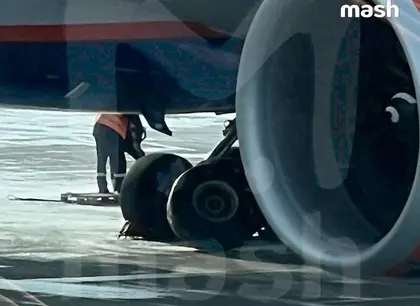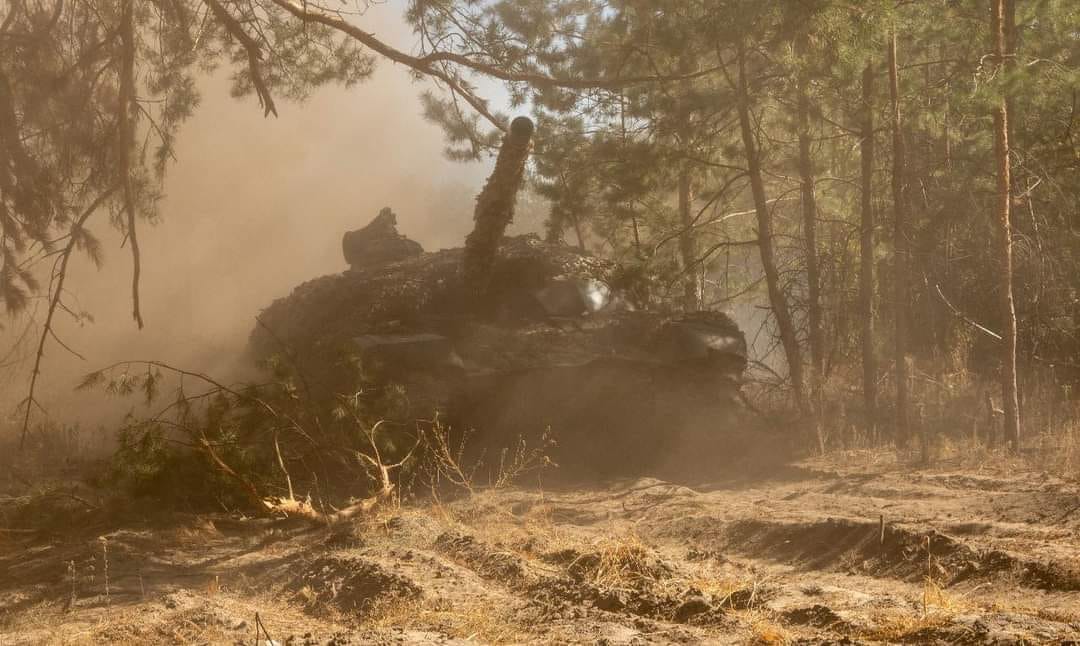An Aeroflot plane flying from Moscow was forced to make an emergency landing on Friday, the latest in a string of such incidents to hit Russia’s sanctions-stricken aviation industry in recent weeks.
The Ministry of Emergency Situations for the Sakhalin Region said the Boeing 777 aircraft carrying 4 crew members and 408 passengers had a warning about a drop in pressure in one of the landing gear wheels during the flight.
JOIN US ON TELEGRAM
Follow our coverage of the war on the @Kyivpost_official.
The plane made an emergency landing at Yuzhno-Sakhalinsk airport. Pictures posted to social media showed damage to the aircraft’s landing gear.
Several similar incidents have been reported in recent months – in August, passengers on a Red Wings flight were stuck in the Urals city of Yekaterinburg for 24 hours due to simultaneous “technical malfunctions” on the only two available aircraft.
The same month a Russian Pegas Fly plane was delayed in Thailand due to faults with its weather monitoring system.
At the start of October, the state airline Aeroflot suffered three technical failures to its planes in a single day.
The latest incident comes just a few days after hack of Kremlin records revealed Russia’s airline industry is “on the verge of collapse” due to inadequate spare parts, uncertified repair services, and other systemic maintenance problems caused by sanctions.
Ukraine’s Main Intelligence Directorate of the Ministry of Defense (HUR) posted the details of its latest “special cyber operation” on its Telegram channel.

Seoul Calls On Xi Jinping to Halt Pyongyang’s Military Cooperation with Putin
This action was a hack into Russia’s Federal Air Transport Agency “Rosaviatsiya” computer system on which it records all data relating to flight safety records, including reports on “emergency events.”
The huge volume of data obtained by HUR covered more than eighteen months’ worth of records from 2022 and 2023.
Their analysis of the information obtained led the intelligence staff to one inescapable conclusion – Russia’s civil aviation “is on the verge of collapse.”
Why is it collapsing?
The majority of planes operated by Russian airlines are made by either Airbus or Boeing, Western companies that have stopped doing business with Russia.
The main problems for Russian airlines center around engine maintenance and computerized control systems.
The sector, heavily reliant on international suppliers, has been among the hardest hit by Western sanctions resulting from Moscow's assault on Ukraine.
Cut off from Europe's Airbus and US-based Boeing, Russian airlines are facing particular trouble securing and maintaining both the physical parts and advanced software needed to keep planes in the air, experts say.
What have been the wider effects on the industry?
S7, Russia's largest private airline, will reduce the number of flights by 10-15 percent over the 2023-2024 autumn/winter period due to maintenance problems concerning the US-made engines for its Airbus planes, Russian media reported.
Unable to secure original parts for their Western-made jets, Russian companies have resorted to cannibalizing their existing fleet – grounding entire planes to strip them for parts.
Such a solution is seen as merely a short-term fix.
What has the Kremlin said?
The Kremlin has acknowledged that all is not well in Russia's aviation industry.
“We are facing new challenges, and we are looking for new ways to resolve them,” Kremlin spokesman Dmitry Peskov said, when asked about the headwinds buffeting Russia's aviation sector.
Russian politicians have pinned their hopes on domestic manufacturers building hundreds of planes to replace the Western models.
But Russia's recent record in aircraft making is erratic.
The country's main post-Soviet model – the Sukhoi Superjet – had already earned a reputation as being prone to breakdowns and accidents even before Western sanctions kicked-in.
Plans for a new medium-haul jet, the Irkut MS-21, have fallen far behind schedule. In April, a Russian airline association expressed concern over the slow production schedule for new domestic planes that they need to replace their Western-made fleet.
“Maintaining the airworthiness of the foreign aircraft we have requires significant expenditure,” the Russian Association of Air Transport Operators said in a report.
Unless Moscow succeeds in either circumventing Western sanctions to secure aircraft parts or flying under-maintained planes, Russia's fleet numbers could drop by more than a third – from 850 to 554 – by 2033, analysts at consultancy Oliver Wyman say.
What happens if Russia can’t fix things?
Russia is no stranger to air disasters as a result of pressure on the industry.
The country saw a string of crashes that killed hundreds in the 1990s and early 2000s, due to an ageing Soviet fleet and poorly maintained aircraft.
Permanently cutting down on air travel altogether is also a non-starter in a country that spans 11 time zones. Western countries, including the European Union, US and Britain, have banned Russian airlines from operating in their airspace.
So far, domestic air traffic inside Russia has not markedly fallen since the start of Russia's offensive on Ukraine.
The Aviation Safety Network (ASN) also reported the number of aviation incidents in Russia over the period has stayed within the range recorded in previous years.
But as time passes, the risks are likely to increase.
You can also highlight the text and press Ctrl + Enter






